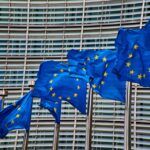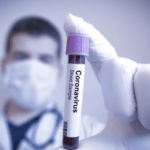The Commission has presented guidelines to Member States on health-related border management measures in the context of the COVID-19 emergency.
The aim is to protect citizens’ health, ensure the right treatment of people who do have to travel, and make sure essential goods and services remain available. Commissioners Kyriakides and Johansson have presented the guidelines to EU ministers of Health and of Home Affairs at their first joint video meeting starting at 11am this morning.
Proposed Guidelines
The guidelines set out principles for an integrated approach to an effective border management to protect health while preserving the integrity of the internal market.
Protecting people’s health
People identified as at risk of spreading COVID-19 should have access to appropriate health care, either in the country of arrival or in the country of departure, and this should be coordinated between the two.
It is possible to submit everyone entering the national territory to health checks without formal introduction of internal border controls. The difference between normal health checks and border controls is the possibility to deny entry to individual persons. People who are sick should not be denied entry but given access to healthcare.
Member States may reintroduce internal border controls for reasons of public policy, which, in extremely critical situations, may include public health. Such border controls should be organised to prevent the emergence of large gatherings (e.g. queues), which risk increasing the spread of the virus. Member States should coordinate to carry out health screening on one side of the border only.
All border controls should be applied in a proportionate manner and with due regard to people’s health. Member States must always admit their own citizens and residents, and should facilitate transit of other EU citizens and residents that are returning home. However, they can take measures such as requiring a period of self-isolation, if they impose the same requirements on their own nationals.
Member States should facilitate the crossing of frontier workers, in particular but not only those working in the health care and food sector, and other essential services (e.g. child care, elderly care, critical staff for utilities).
Ensuring the flow of essential goods and services
Free circulation of goods is crucial to maintain availability of goods. This is particularly crucial for essential goods such as food supplies including livestock, vital medical and protective equipment and supplies. More generally, control measures should not cause serious disruption of supply chains, essential services of general interest and of national economies and the EU economy as a whole. Member States should designate priority lanes for freight transport (e.g. via ‘green lanes’).
In the same vein, safe movement for transport workers, including truck and train drivers, pilots and aircrew is a key factor to ensure adequate movement of goods and essential staff.
No additional certifications should be imposed on goods legally circulating within the EU single market. According to the European Food Safety Authority, there is no evidence that food is a source or a transmission source of COVID-19.
Schengen and clousure of borders
The Civil Liberties committee is closely monitoring the situation and expects the Commission, the Council Presidency and the member states to protect all benefits of the Schengen area.”
Regulation (EU) 2016/399 on a Union Code on the rules governing the movement of persons across borders (Schengen Borders Code) explicitly provides for risk of public health as a ground to refuse entry at the external Schengen border (Title II), but it does not provide for the possibility to temporarily reintroduce border control at internal borders on public health grounds (Title III thereof).
For More Information
Commission moves to ensure supply of personal protective equipment in the European Union







Leave a Reply